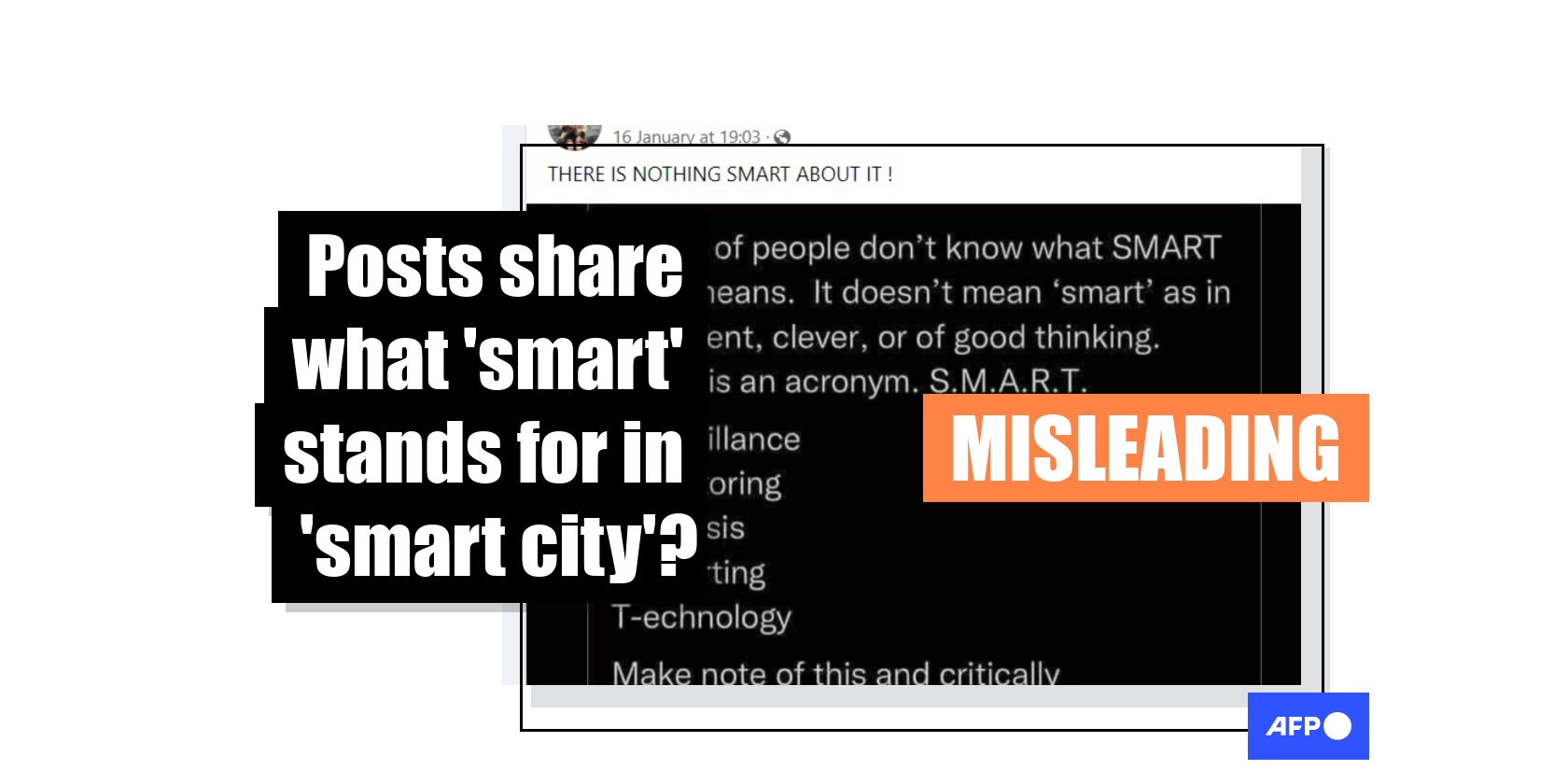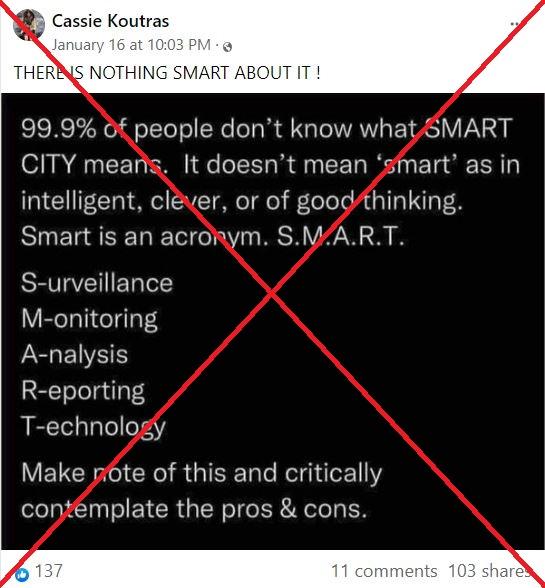
Posts misleadingly link smart city concept to 'surveillance and reporting technology' acronym
- This article is more than three years old.
- Published on February 14, 2023 at 09:50
- 2 min read
- By Kate TAN, AFP Australia
"There's nothing smart about it!" reads a post shared on Facebook here on January 16, 2023.
The post includes a graphic of white text on a black background that reads: "99.9% of people don't know what SMART CITY means. It doesn't mean 'smart' as in intelligent, clever, or of good thinking. Smart is an acronym. S.M.A.R.T.
"S-urveillance M-onitoring A-nalysis R-eporting T-echnology.
"Make note of this and critically contemplate the pros & cons."
The post has been shared more than 100 times.

The claim was also shared hundreds of times in Facebook posts by users in New Zealand, the UK and the United States, and on Twitter by users in the Netherlands, Canada and the United States.
Experts told AFP that while there is no universal definition of what a "smart city" is, the purported acronym is not recognised or associated with the concept.
A similar acronym is used for a system that monitors the health of computer hard drives.
Smart city concept
University of South Australia lecturer Shadi Shayan told AFP the purported acronym is "not the common definition of a smart city among academics, industry, and governments."
It was "not all about surveillance cameras and collecting data from people", she said.
Shayan, who led a study on public perceptions of smart cities, said there are various definitions for the concept, with some more socially oriented and others more technological.
She defined it as "using modern technologies in urban areas to collect different types of information for better decision-making regarding city operations with the ultimate goal of improving residents' quality of life".
In Adelaide, for example, "smart bins" provide real-time information about how full they are so they can be emptied before rubbish spills onto the pavement.
And in Singapore, which has implemented several smart city initiatives, sensor data is used to help homeowners save water by collecting information about water usage and leaks.
Nickolas Falkner, director of the Australian Smart Cities Consortium at the University of Adelaide, also told AFP he had not heard the purported acronym associated with the smart city concept.
Falkner said it was "nothing to do with surveillance at all".
He said: "It was a better, cleverer city, that took how we lived and made it more enjoyable and more effective."
'Self-monitoring'
A similar term – "self-monitoring analysis reporting technologies" -- is used in the context of smart cities.
It was used as the title of a chapter in a book about smart cities, published in 2020.
University College London professor Andrew Hudson-Smith -- one of the chapter’s three authors -- told AFP they had expanded the concept of "SMART", which was first associated with computer hard drives, to smart cities.
According to a support article on the website of US technology giant IBM, Self-Monitoring Analysis and Reporting Technology (S.M.A.R.T.) was developed to improve the reliability of disk drives.
"Through the S.M.A.R.T. system, modern hard disk drives incorporate a suite of advanced diagnostics that monitor the internal operations of a drive and provide an early warning for many types of potential problems," the article says.
Copyright © AFP 2017-2026. Any commercial use of this content requires a subscription. Click here to find out more.
Is there content that you would like AFP to fact-check? Get in touch.
Contact us
